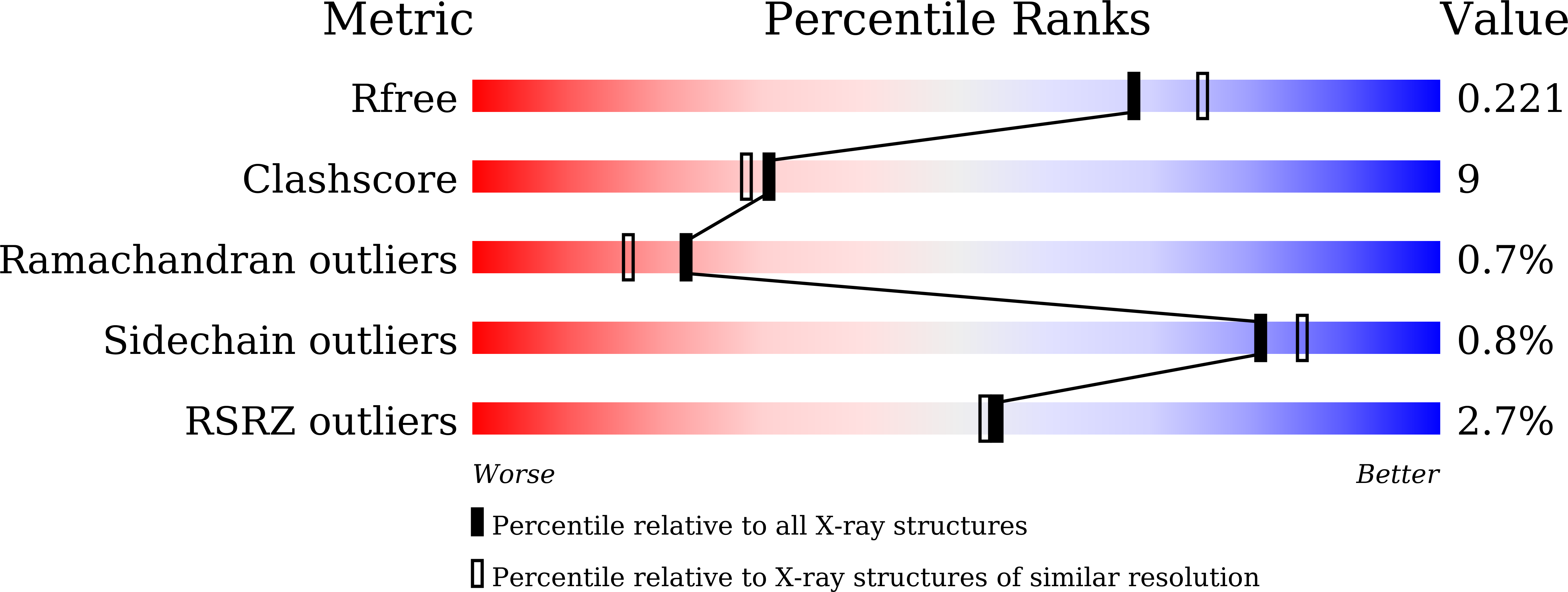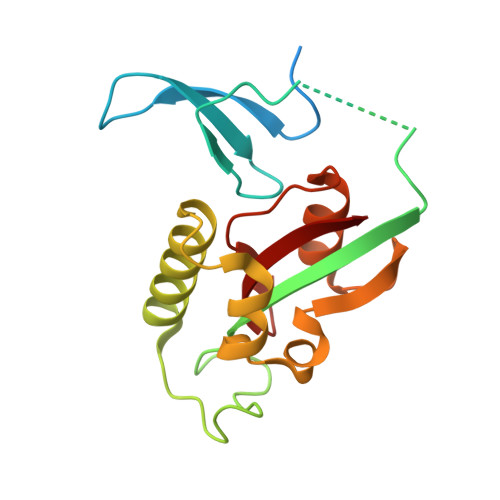Computational and Structure-Based Development of High Potent Cell-Active Covalent Inhibitor Targeting the Peptidyl-Prolyl Isomerase NIMA-Interacting-1 (Pin1).
Liu, L., Zhu, R., Li, J., Pei, Y., Wang, S., Xu, P., Wang, M., Wen, Y., Zhang, H., Du, D., Ding, H., Jiang, H., Chen, K., Zhou, B., Yu, L., Luo, C.(2022) J Med Chem 65: 2174-2190
- PubMed: 35089030
- DOI: https://doi.org/10.1021/acs.jmedchem.1c01686
- Primary Citation of Related Structures:
7EFJ, 7EFX, 7EKV, 7F0M - PubMed Abstract:
The unique proline isomerase peptidyl-prolyl isomerase NIMA-interacting-1 (Pin1) is reported to activate numerous cancer-driving pathways simultaneously, and aberrant Pin1 activation is present in many human cancers. Here, we identified a novel hit compound, ZL-Pin01 , that covalently modified Pin1 at Cys113 with an half-maximal inhibitory concentration (IC 50 ) of 1.33 ± 0.07 μM through screening an in-house library. Crystallographic study drove the process of structure-guided optimization and led to the potent inhibitor ZL-Pin13 with an IC 50 of 0.067 ± 0.03 μM. We obtained four co-crystal structures of Pin1 complexed with inhibitors that elucidated the detailed binding mode of the derivatives with Pin1. Interestingly, the co-crystal of Pin1 with ZL-Pin13 obtained by co-crystallization revealed the conformational change of Gln129 induced by the inhibitor. Furthermore, ZL-Pin13 effectively inhibited the proliferation and downregulated the Pin1 substrates in MDA-MB-231 cells. Collectively, we developed a potent covalent inhibitor of Pin1, ZL-Pin13 , which could be an effective probe for studying the functional roles of Pin1.
Organizational Affiliation:
Drug Discovery and Design Center, The Center for Chemical Biology, State Key Laboratory of Drug Research, Shanghai Institute of Materia Medica, Chinese Academy of Sciences, Shanghai 201203, China.
















